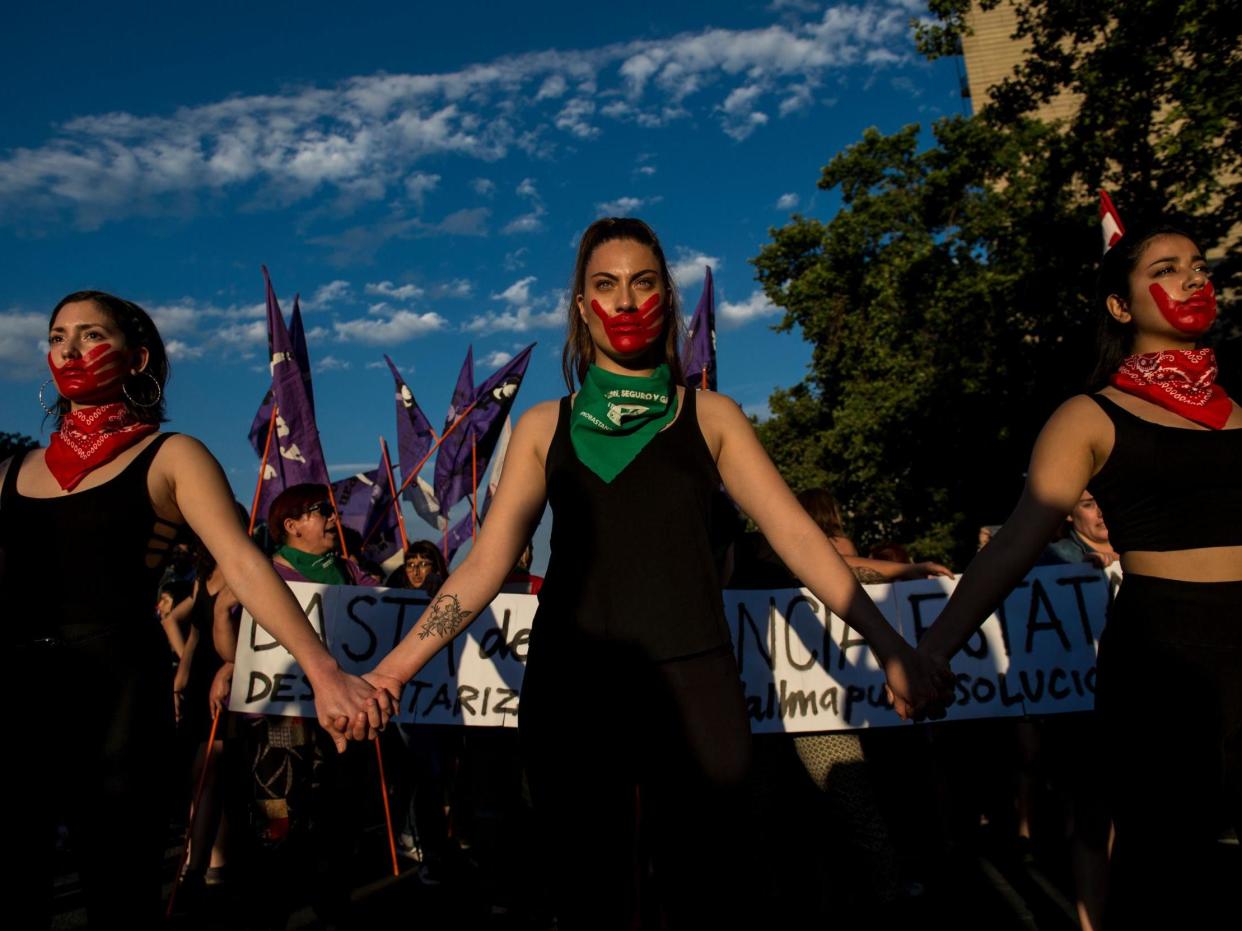How did International Day for the Elimination of Violence Against Women begin?

On 25 November, people around the world commemorate the International Day for the Elimination of Violence Against Women.
According to Amnesty International UK, approximately a third of women who have been in a relationship have experienced physical and/or sexual violence by their partner, while only 24 per cent of domestic violence cases are reported, Women’s Aid states.
Violence against girls and women continues to be a pressing issue that needs to be addressed on a global scale, a fact that is highlighted on the International Day for the Elimination of Violence Against Women.
Here is everything you need to know about the observance:
How did it begin?
Around two decades ago, the United Nations (UN) officially recognised 25 November as the day on which to commemorate the International Day for the Elimination of Violence Against Women.
However, the history of the observance can be traced back almost 40 years prior.
On 25 November 1960, three of the four Mirabal sisters, political activists from the Dominican Republic who opposed the regime of dictator Rafael Trujillo, were assassinated.
The sisters who died were Patria, Minerva and María Teresa, while their fourth sister Dedé lived until 1 February 2014.
In 1981, women’s rights activists marked the anniversary of their deaths on 25 November as a day on which to raise awareness of gender-based violence.
Please always respect why today marks the International Day for the Elimination of #ViolenceAgainstWomen. It is the anniversary of the death of the #MirabalSisters. They were tortured & assassinated in 1960 for speaking out against dictator Rafael Trujillo. #TheButterflies🦋🦋🦋 pic.twitter.com/AYeWT7bRVD
— bonney corbin (@bonneycorbin)
Twelve years later, the United Nations General Assembly adopted the Declaration on the Elimination of Violence Against Women, which recognises “the urgent need for the universal application to women of the rights and principles with regard to equality, security, liberty, integrity and dignity of all human beings”.
The declaration stated that the UN is “concerned that violence against women is an obstacle to the achievement of equality, development and peace”, stating that “violence against women is a manifestation of historically unequal power relations between men and women”.
On 7 February 2000, the General Assembly officially designated 25 November as the International Day for the Elimination of Violence Against Women, encouraging organisations across the globe to “raise public awareness of the issues every year on that date”.
What is this year’s theme?
The 2019 theme for the International Day for the Elimination of Violence Against Women is “Orange the World: Generation Equality Stands Against Rape”, placing focus on those who have suffered rape.
“Rape, a single word with devastating impact that spans decades, even generations. It destroys bodies and minds and puts peace in jeopardy,” UN Women states.
“Through words, actions and inactions; discriminatory laws or leniency towards perpetrators; through the media we consume, jokes we laugh at, and attitudes we do not question, we become part of a culture that allows rape to continue.”
The UN is encouraging people to express their support for the international commemoration by using the colour orange on social media, in addition to the hashtags #OrangeTheWorld and #GenerationEquality.
The International Day for the Elimination of Violence Against Women marks the beginning of the UN’s 16 days of Activism against Gender-Based Violence, which will conclude on 10 December on International Human Rights Day.
What is its connection with White Ribbon Day?
The White Ribbon Campaign is a global movement of boys and men to end violence against girls and women.
The movement was formed in Ontario, Canada in 1991 following the 1989 École Polytechnique Massacre, in which a man killed 14 women at an engineering school.
Please don’t call the International Day for the Elimination of Violence Against Women white ribbon day.
I wrote this a few years ago to explain why. https://t.co/dXxzDs74fg— Karen Ingala Smith (@K_IngalaSmith)
Boys and men who participate in the White Ribbon Campaign, which is active in more than 60 countries across the globe, are encouraged to wear white ribbons to show their support.
White Ribbon Day coincides with the International Day for the Elimination of Violence Against Women on 25 November.
You can contact the 24-hour National Domestic Violence Helpline by calling 0808 2000 247.


